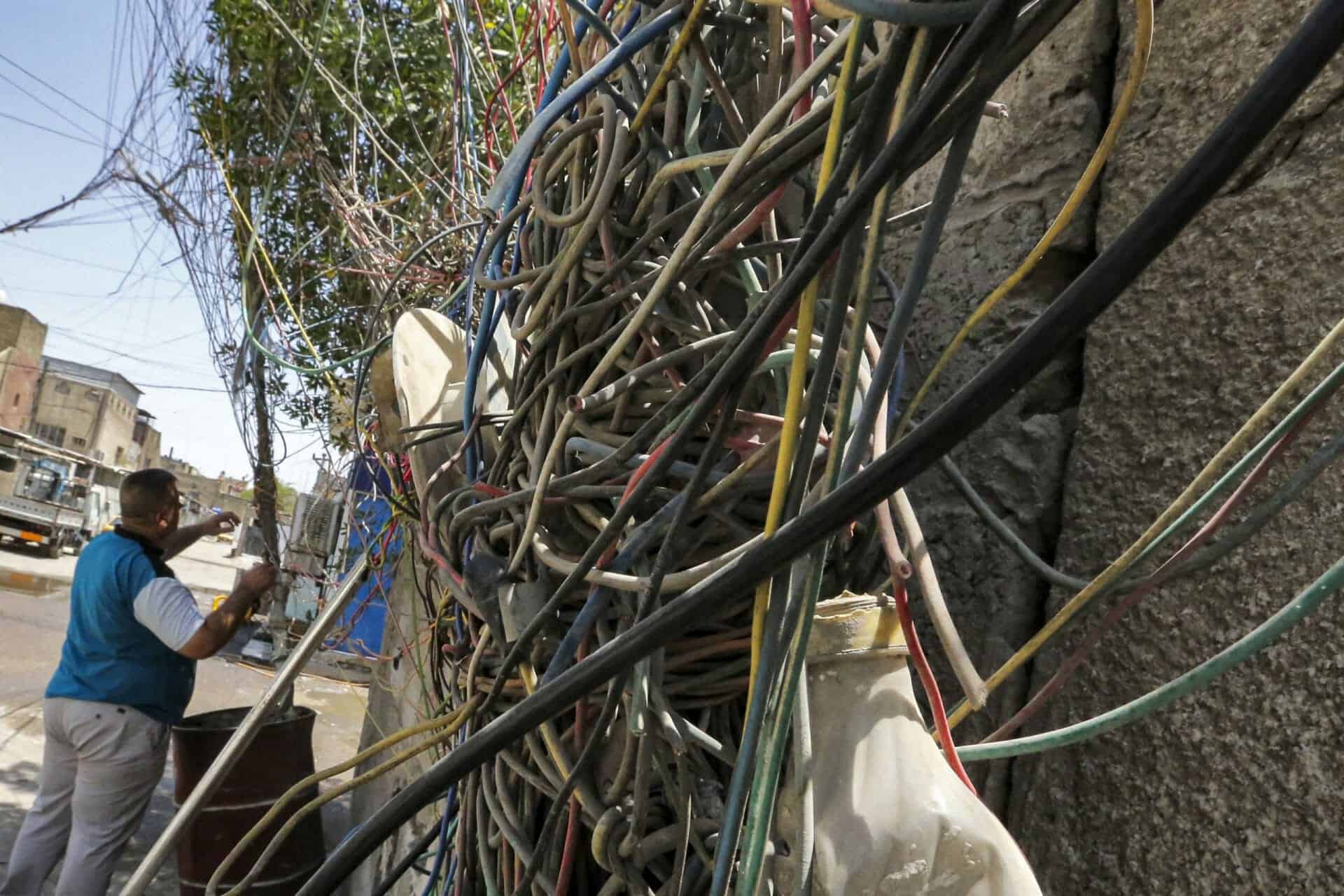Baghdad, Iraq — Iraq said Friday a power line would soon bring electricity from Jordan to the border area as authorities aim to diversify energy sources to ease the country’s chronic outages.
With its generating capacity ravaged by decades of conflict and underinvestment, Iraq has long relied on imports of both gas and electricity from neighboring Iran.
The 340-kilometer (210-mile) power line from Jordan will officially start operating on Saturday, the electricity ministry said in a statement.
In a first phase, it will provide 40 megawatts (MW) of power to the Al-Rutbah area near the border. Its capacity will then be boosted to 150 MW and finally 500 MW to cover “several large parts” of Anbar province, west of the capital Baghdad.
Despite its vast oil reserves, Iraq suffers rolling power cuts that can can last up to 10 hours a day, forcing those households that can afford it to subscribe to neighbourhood generators as a back-up.
Iraq’s imports from Iran are carefully monitored by the United States to make sure they do not breach US sanctions on Tehran, which regularly cuts supply to punish non-payment.
Power outages are particularly severe in the summer when temperatures regularly hit 50 degrees Celsius (122 Fahrenheit) and demand for refrigeration and air-conditioning surges.








